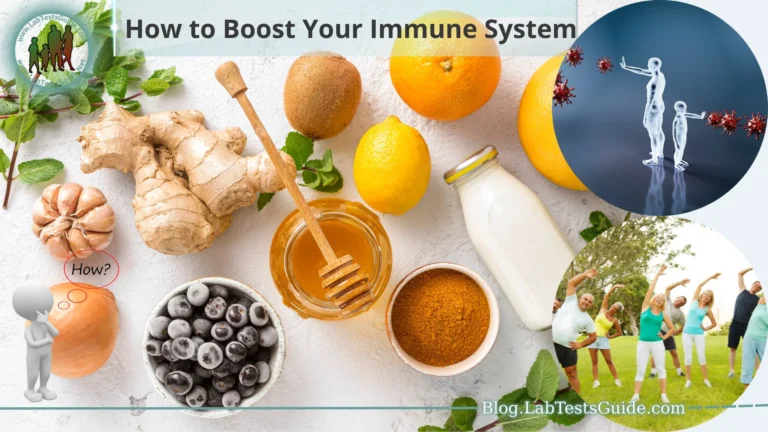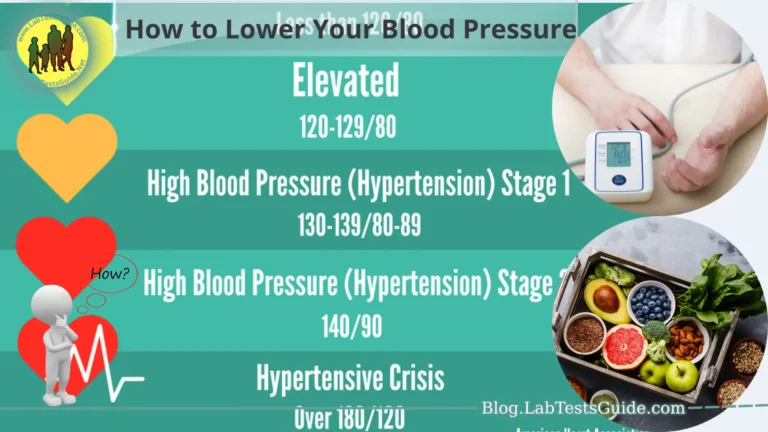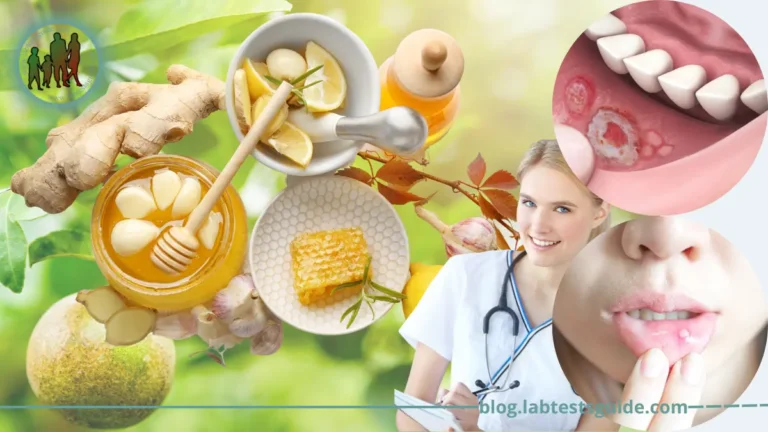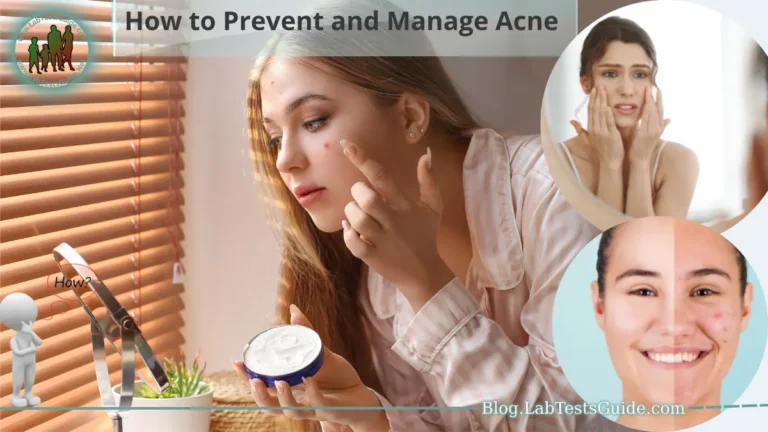Premenstrual Syndrome (PMS) refers to a collection of physical and emotional symptoms that occur in the days or weeks before a woman’s menstrual period. It affects a significant number of women of reproductive age and can vary in severity from mild to debilitating. The exact cause of PMS is not fully understood, but hormonal fluctuations, chemical imbalances in the brain, and individual sensitivity to these changes are believed to play a role.

PMS symptoms typically occur in a predictable pattern and can vary widely between women. Common physical symptoms include bloating, breast tenderness, fatigue, headaches, and cramps. Emotional and psychological symptoms may include mood swings, irritability, anxiety, depression, and difficulty concentrating. These symptoms can interfere with daily activities, relationships, and overall well-being.
What are Lifestyle Changes for PMS Relief:
Here are some lifestyle changes that can be beneficial.
Balanced Diet and Nutrition:
- Eat a well-balanced diet: Include a variety of fruits, vegetables, whole grains, lean proteins, and healthy fats in your meals. Avoid excessive consumption of processed foods, sugary snacks, and caffeine.
- Increase calcium intake: Consuming calcium-rich foods like dairy products, leafy greens, and fortified plant-based milks can help reduce PMS symptoms.
- Limit salt intake: High salt intake can contribute to bloating and fluid retention. Reduce your consumption of salty foods and opt for alternatives with lower sodium content.
- Stay hydrated: Drink plenty of water throughout the day to help reduce bloating and support overall health.
Regular Exercise and Physical Activity:
- Engage in regular aerobic exercise: Activities like walking, jogging, swimming, or cycling can help improve mood, reduce stress, and alleviate PMS symptoms.
- Incorporate strength training: Including strength training exercises can help improve muscle tone, boost metabolism, and support overall physical well-being.
- Practice relaxation techniques: Activities like yoga, tai chi, or deep breathing exercises can help reduce stress and promote relaxation.
Stress Management Techniques:
- Identify and manage stress triggers: Recognize sources of stress in your life and find healthy ways to cope with them, such as through mindfulness, meditation, or engaging in hobbies.
- Time management: Prioritize tasks and responsibilities, and create a schedule that allows for breaks and self-care.
- Seek support: Talk to friends, family, or a therapist about your feelings and concerns. Having a support system can help reduce stress and provide emotional support.
Quality Sleep and Rest:
- Establish a consistent sleep schedule: Aim for 7-8 hours of uninterrupted sleep each night by practicing good sleep hygiene, such as avoiding screens before bed and creating a comfortable sleep environment.
- Relaxation before sleep: Engage in calming activities before bedtime, such as reading a book, taking a warm bath, or practicing relaxation techniques.
Limiting Caffeine and Alcohol Intake:
- Reduce caffeine consumption: Caffeine can exacerbate symptoms like irritability, anxiety, and breast tenderness. Limit your intake of coffee, tea, soda, and chocolate.
- Moderate alcohol consumption: Excessive alcohol consumption can disrupt sleep patterns, worsen mood swings, and increase dehydration. Limit alcohol intake or avoid it altogether.
Incorporating these lifestyle changes into your daily routine can have a positive impact on managing PMS symptoms. It’s important to note that individual responses may vary, so it’s advisable to experiment and find what works best for you.
Understanding PMS Symptoms:
Here are the common categories of PMS symptoms.
Physical Symptoms:
- Bloating: Many women experience abdominal bloating, water retention, and a feeling of fullness.
- Breast Tenderness: Breasts may become swollen, tender, or painful.
- Fatigue: Feeling tired, lacking energy, or experiencing general exhaustion.
- Headaches: Some women experience tension headaches or migraines during this time.
- Cramps: Menstrual cramps can occur before or during the period, causing abdominal pain.
Emotional and Psychological Symptoms:
- Mood Swings: Rapid and unpredictable changes in mood, including irritability, anger, sadness, or anxiety.
- Anxiety: Increased feelings of unease, nervousness, or tension.
- Depression: A sense of sadness, hopelessness, or a loss of interest in activities.
- Irritability: Feeling easily annoyed, agitated, or more sensitive to stimuli.
- Difficulty Concentrating: Some women may experience trouble focusing, forgetfulness, or experiencing “brain fog.”
Behavioral and Cognitive Symptoms:
- Food Cravings: A desire for specific types of food, especially high-carbohydrate or sugary foods.
- Insomnia: Difficulty falling asleep or staying asleep during the premenstrual phase.
- Changes in Libido: Some women may experience a decrease or increase in sexual desire.
- Social Withdrawal: A tendency to isolate oneself from social activities or interactions.
It’s important to note that not all women experience every symptom, and the intensity and duration of symptoms can vary from person to person. Additionally, these symptoms usually resolve once menstruation begins or shortly thereafter.
Natural Remedies for PMS:
Here are some natural remedies for PMS.
Herbal Supplements and Teas:
- Chasteberry (Vitex): This herb may help regulate hormone levels and reduce PMS symptoms such as breast tenderness, mood swings, and headaches.
- Evening Primrose Oil: It contains essential fatty acids that can help alleviate breast pain, bloating, and mood swings.
- Dong Quai: Known for its hormonal balancing properties, Dong Quai may reduce symptoms like cramps and mood fluctuations.
- Herbal Teas: Chamomile, peppermint, ginger, and raspberry leaf teas can provide relaxation, reduce bloating, and ease menstrual discomfort.
Vitamins and Minerals:
- Calcium: Adequate calcium intake may help reduce mood swings, irritability, and cramps. Include calcium-rich foods like dairy products, leafy greens, and fortified plant-based milks in your diet.
- Magnesium: This mineral can help relax muscles, reduce water retention, and ease anxiety. Sources of magnesium include dark chocolate, nuts, seeds, and leafy green vegetables.
- Vitamin B6: Taking a vitamin B6 supplement or consuming foods rich in this vitamin, such as bananas, chickpeas, and salmon, may help alleviate symptoms like mood swings and breast tenderness.
Omega-3 Fatty Acids:
- Consuming foods rich in omega-3 fatty acids, such as fatty fish (salmon, sardines), flaxseeds, chia seeds, and walnuts, can help reduce inflammation and alleviate symptoms like breast tenderness, mood swings, and bloating.
Healthy Diet and Nutrition:
- Emphasize a well-balanced diet with plenty of fruits, vegetables, whole grains, and lean proteins to support overall health and hormonal balance.
- Limit or avoid processed foods, sugary snacks, caffeine, and alcohol, as they can exacerbate PMS symptoms.
Exercise and Physical Activity:
- Regular aerobic exercise, such as walking, jogging, swimming, or cycling, can help improve mood, reduce stress, and alleviate PMS symptoms.
- Engage in relaxation exercises like yoga or deep breathing to promote relaxation and reduce stress.
Stress Reduction Techniques:
- Practice stress management techniques like mindfulness meditation, deep breathing exercises, or engaging in hobbies and activities that promote relaxation.
- Ensure you have adequate rest and prioritize self-care activities to reduce overall stress levels.
It’s important to note that natural remedies may take time to show effects, and consistency is key. If your symptoms are severe or significantly impact your daily life, it’s advisable to consult with a healthcare professional for further evaluation and guidance.
Over-the-Counter Medications for PMS Relief:
Here are some common OTC medications used for PMS relief.
Pain Relievers:
- Nonsteroidal Anti-Inflammatory Drugs (NSAIDs): Medications like ibuprofen or naproxen sodium can help reduce menstrual cramps, backaches, and headaches associated with PMS. They work by reducing inflammation and relieving pain.
Nonsteroidal Anti-Inflammatory Drugs (NSAIDs):
- Diuretics: These medications, such as spironolactone, can help reduce water retention and bloating associated with PMS. They work by increasing urine production and eliminating excess fluids from the body.
- Herbal Supplements: Evening Primrose Oil: Available in supplement form, evening primrose oil contains essential fatty acids that may help reduce breast tenderness, bloating, and mood swings associated with PMS.
- Topical Pain Relief: Topical analgesics: Creams or gels containing ingredients like menthol, camphor, or lidocaine can provide localized pain relief for muscle aches or breast tenderness.
It’s essential to follow the recommended dosages and instructions provided on the packaging or as advised by a healthcare professional. If symptoms persist or worsen despite using OTC medications, it’s advisable to consult with a healthcare professional for further evaluation and guidance. They can assess your symptoms and recommend appropriate treatment options based on your individual needs.
Prescription Medications for PMS Relief:
Here are some common prescription medications used for PMS relief.
Hormonal Birth Control:
- Combination Oral Contraceptives: These birth control pills contain a combination of estrogen and progestin hormones. They can help regulate hormonal fluctuations, reduce menstrual cramps, and alleviate symptoms like mood swings, bloating, and breast tenderness.
- Progestin-Only Pills: Progestin-only birth control pills or mini-pills can be used for women who cannot take estrogen. They help regulate hormonal changes and reduce symptoms like heavy bleeding, cramps, and breast tenderness.
Selective Serotonin Reuptake Inhibitors (SSRIs):
- SSRIs, commonly used as antidepressants, can be prescribed in low doses to alleviate mood-related symptoms of PMS, such as irritability, depression, and anxiety. Examples include fluoxetine (Prozac), sertraline (Zoloft), and escitalopram (Lexapro).
Gonadotropin-Releasing Hormone (GnRH) Agonists:
- In severe cases of PMS, GnRH agonists like leuprolide (Lupron) may be prescribed to temporarily suppress ovulation and hormone production. This can help alleviate symptoms, but these medications are typically used as a last resort due to potential side effects and long-term implications.
It’s important to discuss the potential risks, benefits, and side effects of prescription medications with your healthcare professional. They can guide you in choosing the most appropriate medication based on your symptoms, medical history, and individual needs. Regular monitoring and follow-up appointments are typically recommended to assess the effectiveness of the medication and make any necessary adjustments.
Remember that: prescription medications should always be used under the guidance and supervision of a healthcare professional.
Complementary Therapies for PMS:
Here are some common complementary therapies for PMS relief.
- Acupuncture: Acupuncture involves the insertion of thin needles into specific points on the body. It is believed to promote the flow of energy and restore balance. Acupuncture may help alleviate symptoms such as pain, bloating, and mood swings associated with PMS.
- Massage Therapy: Massage therapy can help relax muscles, reduce tension, and alleviate physical symptoms like cramps, headaches, and backaches associated with PMS. Techniques such as Swedish massage, deep tissue massage, or aromatherapy massage may be beneficial.
- Yoga and Meditation: Yoga combines physical postures, breathing exercises, and meditation to promote relaxation and reduce stress. Specific yoga poses can target symptoms like cramps, bloating, and mood swings. Meditation techniques can help calm the mind and reduce anxiety and irritability.
- Cognitive Behavioral Therapy (CBT): CBT is a type of talk therapy that focuses on identifying and changing negative thought patterns and behaviors. It can help individuals manage stress, cope with emotions, and develop effective strategies for dealing with PMS symptoms.
- Herbal Remedies and Supplements: Herbal remedies like black cohosh, St. John’s wort, or valerian root may be used to manage PMS symptoms. It’s important to consult with a healthcare professional or herbalist for guidance on appropriate dosages and potential interactions with other medications.
- Mind-Body Techniques: Relaxation techniques such as deep breathing exercises, progressive muscle relaxation, guided imagery, or biofeedback can help reduce stress, promote relaxation, and alleviate symptoms associated with PMS.
It’s important to remember that complementary therapies should be used as adjunctive treatments and not as a substitute for medical care. It’s advisable to discuss these therapies with a healthcare professional to ensure they are appropriate for your specific situation and to ensure proper integration with any other treatments you may be receiving.
FAQs:
Can PMS symptoms vary from month to month?
Yes, PMS symptoms can vary from month to month. Some women may experience different symptoms or varying degrees of intensity in their symptoms with each menstrual cycle. Keeping track of your symptoms over several cycles can help identify patterns and provide a better understanding of how your body responds to hormonal changes.
Are there any specific dietary recommendations for managing PMS symptoms?
While there is no specific PMS diet, adopting a well-balanced diet can help alleviate symptoms. It is recommended to consume plenty of fruits, vegetables, whole grains, lean proteins, and healthy fats. Additionally, increasing calcium intake and reducing salt, caffeine, and alcohol consumption may help with symptoms like bloating and breast tenderness.
Can exercise help with PMS symptoms?
Yes, regular exercise and physical activity can help alleviate PMS symptoms. Engaging in aerobic exercises like walking, jogging, or swimming can improve mood, reduce stress, and relieve symptoms. Exercise releases endorphins, which are natural mood boosters, and promotes overall well-being.
How long before my period should I start managing PMS symptoms?
It is recommended to start implementing strategies to manage PMS symptoms a few days to a week before your expected period. This allows time for lifestyle changes, natural remedies, or medications to take effect and potentially reduce the severity of symptoms.
When should I seek medical advice for PMS symptoms?
If your PMS symptoms significantly interfere with your daily life, relationships, or overall well-being, it is advisable to seek medical advice. Additionally, if your symptoms worsen over time, new symptoms arise, or you experience unusual or severe pain, it is important to consult with a healthcare professional for proper evaluation and guidance.
Are there any alternative therapies that can help with PMS symptoms?
Yes, alternative therapies like acupuncture, massage therapy, yoga, meditation, and cognitive-behavioral therapy (CBT) can provide relief for PMS symptoms. These therapies focus on relaxation, stress reduction, and promoting overall well-being. It’s important to consult with qualified practitioners to ensure appropriate use and effectiveness of these therapies.
Conclusion:
Premenstrual Syndrome (PMS) is a common condition experienced by many women, characterized by a range of physical, emotional, and psychological symptoms. While it cannot be completely cured, there are various strategies and treatments available to alleviate PMS symptoms and improve overall well-being.
This guide has provided an overview of different approaches to managing PMS symptoms. Lifestyle changes, such as maintaining a balanced diet, engaging in regular exercise, managing stress, prioritizing quality sleep, and limiting caffeine and alcohol intake, can make a significant difference in symptom management.
Natural remedies, including herbal supplements, vitamins and minerals, and omega-3 fatty acids, can offer additional relief for PMS symptoms. Over-the-counter medications like pain relievers and diuretics can provide targeted symptom relief, while prescription medications, such as hormonal birth control and selective serotonin reuptake inhibitors (SSRIs), may be recommended for more severe cases.
Complementary therapies, including acupuncture, massage therapy, yoga, meditation, and cognitive-behavioral therapy (CBT), can be used alongside other approaches to promote relaxation, reduce stress, and support overall well-being.
Remember that every woman’s experience with PMS is unique, and it may take some time to find the most effective combination of strategies for symptom management. It is always recommended to consult with a healthcare professional for personalized advice and guidance based on your individual needs.






